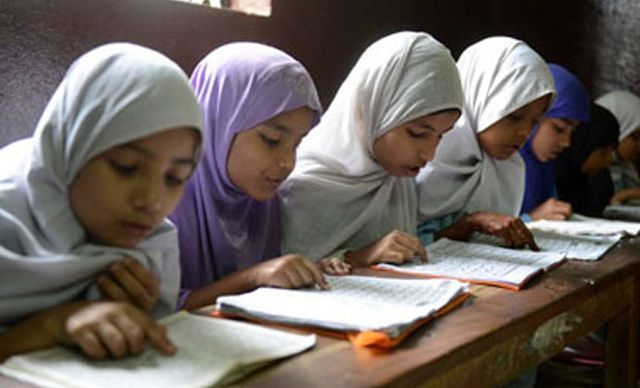Varanasi: Prominent Muslim leaders have strongly criticized the National Commission for Protection of Child Rights (NCPCR) after it recommended the cessation of government funding for Madrasa Boards. The leaders argue that madrasas play a crucial role in preserving oriental languages and their closure would be detrimental, reports the Times of India.
Diwan Saheb Jamoun Khan, a madrasa principal in Uttar Pradesh, emphasized the historical significance of madrasas in promoting languages such as Arabic, Persian, and Sanskrit. He pointed out that madrasas, along with Sanskrit Patshalas, were established in 1908 under an education system designed to protect these languages.
“Closing madrasas is not a positive step. If curriculum reforms are needed, they can be welcomed, but shutting down these institutions is not the solution,” Khan said.
He further noted that approximately 20% of the students in Varanasi madrasas come from non-Muslim backgrounds, with a significant number of teachers from other religions as well. These madrasas provide free education and follow a curriculum aligned with government schools, including NCERT subjects in English and Hindi.
The controversy follows NCPCR Chairman Priyank Kanoongo’s letter to state and Union Territory governments, advising them to discontinue Madrasa Board funding and transfer non-Muslim children to mainstream schools as per the Right to Education (RTE) Act of 2009. The recommendations are based on a report highlighting concerns about the educational environment in madrasas and its impact on children’s rights.
Muslim leader Hafiz Mohammad Khalid condemned the recommendations, accusing the BJP-led government of targeting the Muslim community. He questioned why similar institutions with documented cases of abuse had not been closed.
“Any wrongdoing by teachers, whether in government schools or madrasas, should be addressed legally. But closing madrasas is not a viable or justifiable option,” Khalid said.
The Supreme Court had previously stayed a ruling by the Allahabad High Court to close down Madrasa Boards, and Khalid stressed that the final decision rests with the judiciary. The NCPCR, meanwhile, has defended its recommendations, arguing that they are aimed at ensuring a better educational future for children across the country.
The debate continues as the Muslim community rallies to protect madrasas, citing their cultural and educational significance.




